第45章
Have not you, my fair Reader, sometimes thought to yourself what a delightful husband Tom this, plus Harry that, plus Dick the other, would make? Tom is always so cheerful and good-tempered, yet you feel that in the serious moments of life he would be lacking.Adelightful hubby when you felt merry, yes; but you would not go to him for comfort and strength in your troubles, now would you? No, in your hour of sorrow, how good it would be to have near you grave, earnest Harry.He is a "good sort," Harry.Perhaps, after all, he is the best of the three--solid, staunch, and true.What a pity he is just a trifle commonplace and unambitious.Your friends, not knowing his sterling hidden qualities, would hardly envy you; and a husband that no other girl envies you--well, that would hardly be satisfactory, would it? Dick, on the other hand, is clever and brilliant.He will make his way; there will come a day, you are convinced, when a woman will be proud to bear his name.If only he were not so self-centred, if only he were more sympathetic.
But a combination of the three, or rather of the best qualities of the three--Tom's good temper, Harry's tender strength, Dick's brilliant masterfulness: that is the man who would be worthy of you.
The woman David Copperfield wanted was Agnes and Dora rolled into one.He had to take them one after the other, which was not so nice.And did he really love Agnes, Mr.Dickens; or merely feel he ought to? Forgive me, but I am doubtful concerning that second marriage of Copperfield's.Come, strictly between ourselves, Mr.
Dickens, was not David, good human soul! now and again a wee bit bored by the immaculate Agnes? She made him an excellent wife, I am sure.SHE never ordered oysters by the barrel, unopened.It would, on any day, have been safe to ask Traddles home to dinner; in fact, Sophie and the whole rose-garden might have accompanied him, Agnes would have been equal to the occasion.The dinner would have been perfectly cooked and served, and Agnes' sweet smile would have pervaded the meal.But AFTER the dinner, when David and Traddles sat smoking alone, while from the drawing-room drifted down the notes of high-class, elevating music, played by the saintly Agnes, did they never, glancing covertly towards the empty chair between them, see the laughing, curl-framed face of a very foolish little woman--one of those foolish little women that a wise man thanks God for making--and wish, in spite of all, that it were flesh and blood, not shadow?
Oh, you foolish wise folk, who would remodel human nature! Cannot you see how great is the work given unto childish hands? Think you that in well-ordered housekeeping and high-class conversation lies the whole making of a man? Foolish Dora, fashioned by clever old magician Nature, who knows that weakness and helplessness are as a talisman calling forth strength and tenderness in man, trouble yourself not unduly about those oysters nor the underdone mutton, little woman.Good plain cooks at twenty pounds a year will see to these things for us; and, now and then, when a windfall comes our way, we will dine together at a moderate-priced restaurant where these things are managed even better.Your work, Dear, is to teach us gentleness and kindliness.Lay your curls here, child.It is from such as you that we learn wisdom.Foolish wise folk sneer at you; foolish wise folk would pull up the useless lilies, the needless roses, from the garden, would plant in their places only serviceable wholesome cabbage.But the Gardener knowing better, plants the silly short-lived flowers; foolish wise folk, asking for what purpose.
As for Agnes, Mr.Dickens, do you know what she always makes me think of? You will not mind my saying?--the woman one reads about.
Frankly, I don't believe in her.I do not refer to Agnes in particular, but the woman of whom she is a type, the faultless woman we read of.Women have many faults, but, thank God, they have one redeeming virtue--they are none of them faultless.
But the heroine of fiction! oh, a terrible dragon of virtue is she.
May heaven preserve us poor men, undeserving though we be, from a life with the heroine of fiction.She is all soul, and heart, and intellect, with never a bit of human nature to catch hold of her by.
Her beauty, it appals one, it is so painfully indescribable.Whence comes she, whither goes she, why do we never meet her like? Of women I know a goodish few, and I look among them for her prototype;but I find it not.They are charming, they are beautiful, all these women that I know.It would not be right for me to tell you, Ladies, the esteem and veneration with which I regard you all.You yourselves, blushing, would be the first to cheek my ardour.But yet, dear Ladies, seen even through my eyes, you come not near the ladies that I read about.You are not--if I may be permitted an expressive vulgarism--in the same street with them.Your beauty Ican look upon, and retain my reason--for whatever value that may be to me.Your conversation, I admit, is clever and brilliant in the extreme; your knowledge vast and various; your culture quite Bostonian; yet you do not--I hardly know how to express it--you do not shine with the sixteen full-moon-power of the heroine of fiction.You do not--and I thank you for it--impress me with the idea that you are the only women on earth.You, even you, possess tempers of your own.I am inclined to think you take an interest in your clothes.I would not be sure, even, that you do not mingle a little of "your own hair" (you know what I mean) with the hair of your head.There is in your temperament a vein of vanity, a suggestion of selfishness, a spice of laziness.I have known you a trifle unreasonable, a little inconsiderate, slightly exacting.